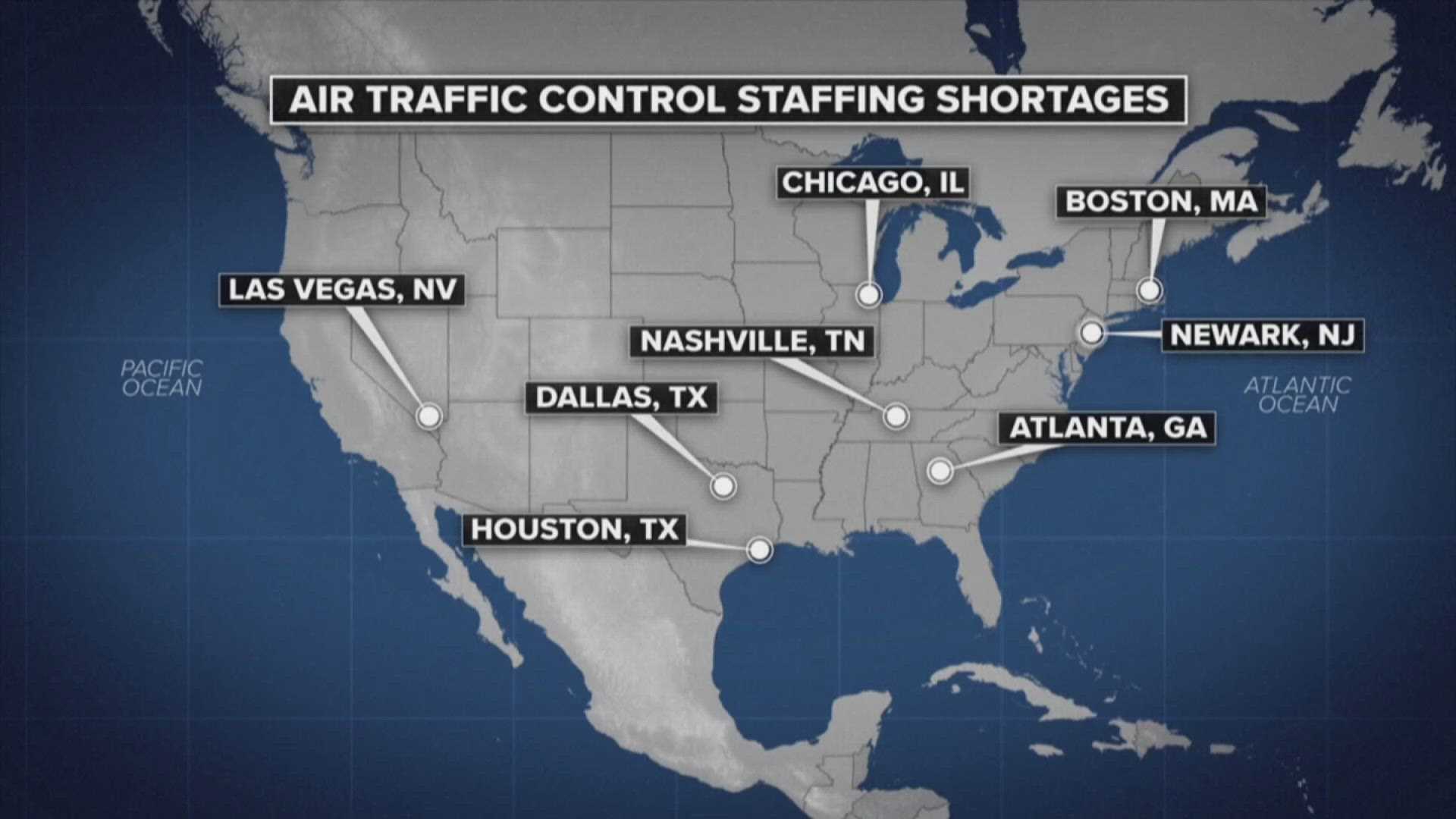News
Air Traffic Control Faces Staffing Shortages Amid Ongoing Government Shutdown

Washington, D.C. — The Federal Aviation Administration (FAA) reports ongoing staffing shortages at air traffic control facilities as the government shutdown enters its eighth day. On Wednesday evening, six major air traffic control centers will operate below normal staffing levels, impacting flights across the country.
Facilities near Washington, D.C., and Denver, as well as those controlling air traffic for Newark and Orlando, are among the affected sites. Transportation Secretary Sean Duffy acknowledged the stress faced by controllers during the shutdown but emphasized their responsibility.
“I’m encouraging air traffic controllers to show up for work,” Duffy told CNN’s Jake Tapper. “They need to control the airspace.” He noted that staffing shortages have caused 53% of air travel delays, compared to just 5% over the past nine months.
The Ronald Reagan Washington National Airport will lack its usual control staff from 5 p.m. to 10 p.m. local time on Wednesday, leading to probable flight delays averaging 31 minutes. This comes after controllers faced scrutiny following a deadly collision at the airport earlier this year.
Denver’s control tower will also face under-staffing from 9 p.m. to midnight, and Newark will experience shortages from 6 p.m. to 9 p.m., likely delaying flights by about 30 minutes. Earlier this morning, Newark’s facility was short of controllers, causing significant disruption.
In addition, the Albuquerque Center and Los Angeles Center will also be below capacity, raising concerns about safety and operational efficiency. “There’s no rhyme or reason to what’s happening with these controllers, but we need to open up the government again,” Duffy stated.
Despite the challenges, the FAA can use other methods to manage air traffic, like rerouting flights. However, Duffy highlighted that delays may occur when safety is at risk because of limited personnel.
As the shutdown persists, there have been increased sick calls among air traffic controllers, raising alarms about further staffing issues. Weather conditions in the Northeast could exacerbate delays, affecting airports in Boston and Philadelphia, among others.
The Transportation Security Administration (TSA) reported no staffing slowdowns due to sick calls, enabling them to maintain safety and security for travelers. The TSA stated operations continue smoothly, despite heightened concern from workers impacted by the shutdown.
Air traffic controllers are considered essential personnel and are required to work during the shutdown without pay. This situation has created feelings of uncertainty and stress among controllers about their financial obligations. Duffy mentioned concerns expressed by controllers regarding their ability to pay bills.
Governor Wes Moore of Maryland acknowledged the efforts of BWI workers who continue their duties in challenging circumstances. “They’re doing it because they’re patriots,” he said, while advocating for an emergency appropriation to ensure pay for controllers during the shutdown.
Nick Daniels, president of the National Air Traffic Controllers Association, pointed to significant issues plaguing the air traffic system due to chronic understaffing. He emphasized that these staffing issues lay bare vulnerabilities that often go unnoticed.
As the government shutdown stretches into its eighth day, concerns are rising over potential disruptions to national air travel, especially with the upcoming holiday season. Analysts warn that further delays could negatively impact many Americans’ Thanksgiving travel plans if the impasse persists.












